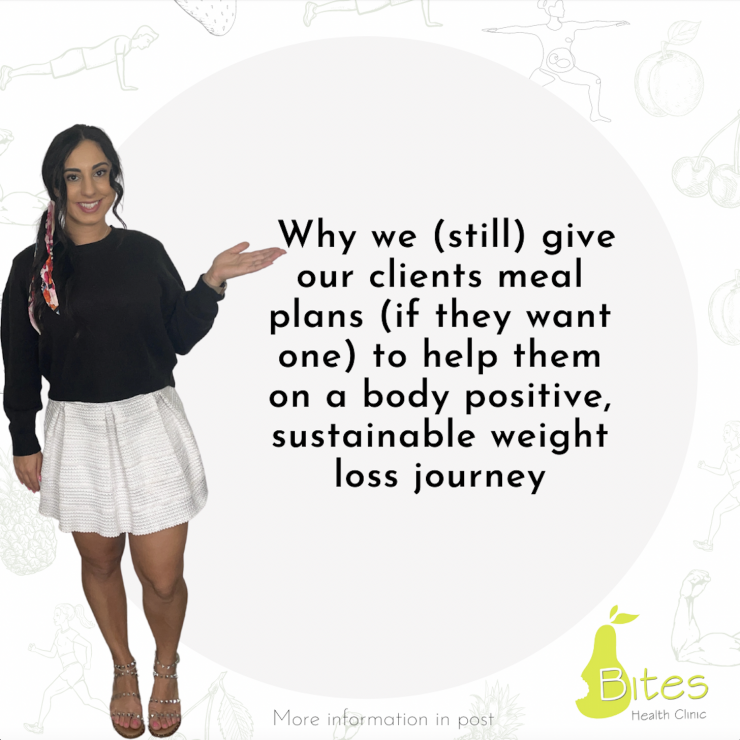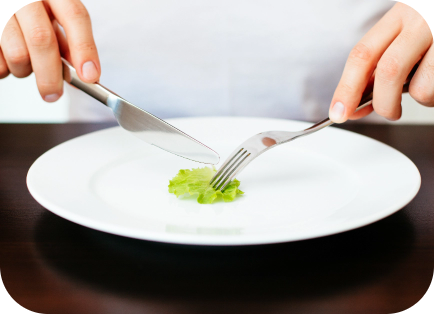
Weight loss is a very touchy subject in the Dietetics world. It’s one of the most widely researched nutrition topics and over the years traditional “diet therapy” has been shown to not be as successful at helping people to keep weight off in the long term. In fact, most people regain the weight lost when followed up over the years to come.
This prompted many studies looking at “non dieting” and the idea to reject putting someone on a diet altogether. Instead a focus on intuitive eating, learning to listen to one’s hunger cues shows much more promising long term results.
So hence 2 sides of the fence were born. The “non diet” Dietitians and the “traditional diet therapy” Dietitians.
We believe we are a different kind. Over 11 years of helping people to achieve their healthy weight and following their progress over subsequent years we’ve learnt a few things.
We believe it’s important to do the journey a little differently with more insight and awareness. We combine both evidence based strategies in a practical way to give you the best chance at achieving your healthy weight loss goal, maintaining it and preserving a healthy relationship with food.
So what have we seen in practice that actually works well to help you do this?
- Meal plans are paramount to give the client a guideline or map of what an appropriate day of eating should look like for them. We don’t ever expect them to be followed 100%.
Think of a meal plan like a map when you’re going on a long trip. If you can’t see where you’re headed or what the destination looks like how are you meant to blindly feel your way there? This is ESPECIALLY difficult if you have various backseat drivers and passers by yelling out different directions at you. - Intuitive eating is amazing but needs to be combined with a rough guideline of what to aim for so that you can meet your actual nutrition needs. Intuitive eating works really well ON ITS OWN when you are a small child. This is when the effects of diet culture, the many diets you’ve read or heard about, conversations with friends and family haven’t yet scrunched up the map, told you all the “shortcuts”, sent you off on long detours and left you feeling overall confused about which way you really should be heading AKA what a nourishing reasonable diet actually looks like for you. As Dietitians we have a responsibility to use the science and evidence base to showcase what that looks like for your individual needs and then support you to listen to your body’s innate voice amongst all the noise in the world to find your way. Thus we are not “telling you what to eat or not eat” but giving you an example of what will tick most of your body’s physical needs and supporting you to choose your own adventure with as much or as little inspiration from us as you like.
- We can help you reroute when things are not working. We are your “google maps” when you find yourself lost along on the way. Because a weight loss journey is usually a long one, at one point along your journey someone is bound to yell out, “Hey turn left, I’ve gone that way before and it cut 10 minutes off my trip” a little too confidently and then before long you see a dirt track with many dangerous potholes and both realise they were driving a 4wd and you’re in a hatchback. We’re the voice that has all the background information necessary so that you don’t make those wrong turns in the first place. Our clients that have the most success in the long term fact check or cross reference new diet strategies with us to see if these can work for them and we discuss the ways these may or may not work so they can make a more informed choice about this new method. We also change their old meal plans to show them how the new method eg vegetarian or intermittent fasting or Mediterranean diet should roundabout look for their individual goals and needs.
- And back to our point about not expecting you to follow the meal plans 100%? We encourage you to take those little stop offs along the way, to lengthen your journey just a little bit because that lookout on the way has incredible views. To go to that fancy dinner or enjoy that incredible cake with friends for a birthday because life is better like that. That’s healthy normal eating and what a true lifestyle change is about. Make the stop off then get back on the road again and be on your merry way to your healthiest life.










